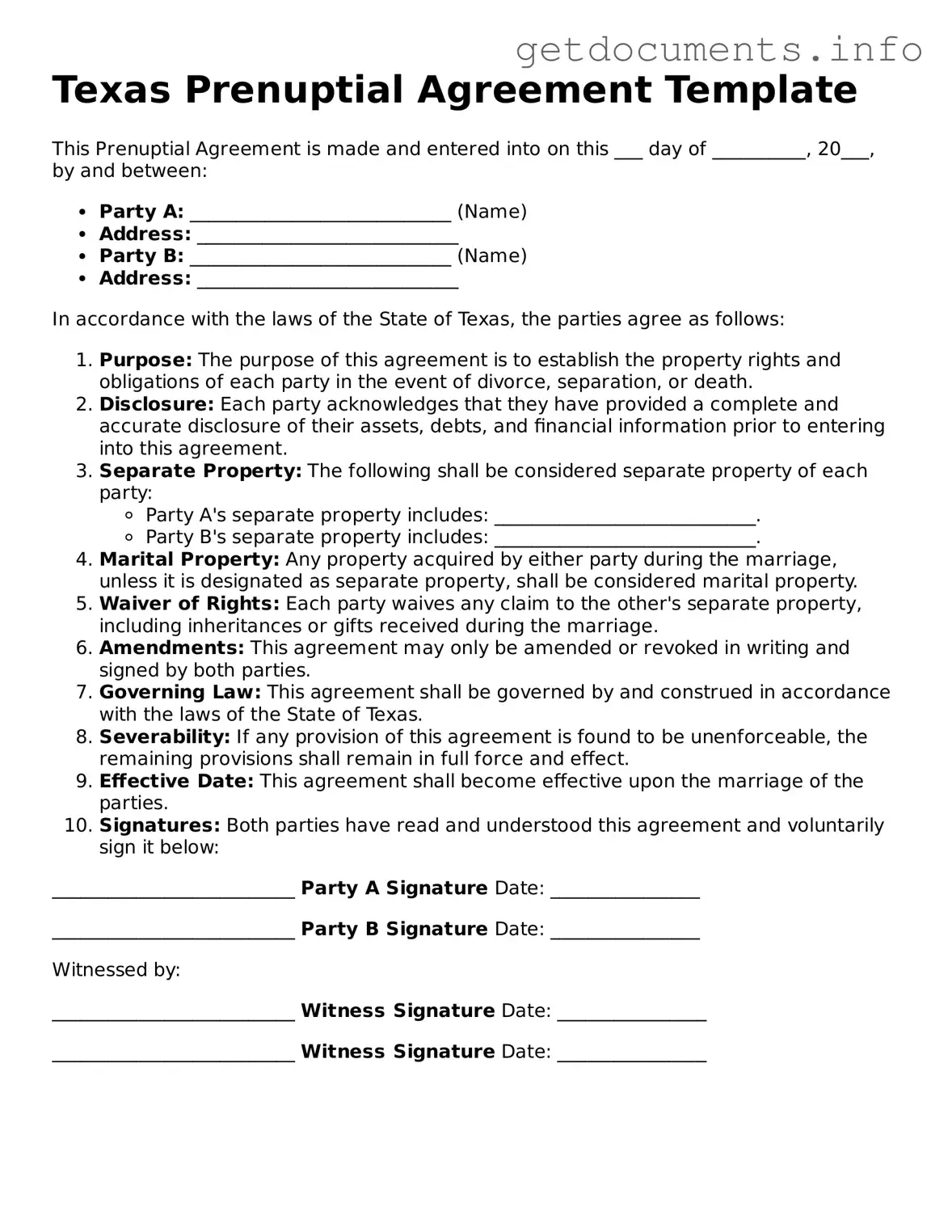Free Prenuptial Agreement Template for Texas
A Texas Prenuptial Agreement form is a legal document that outlines how assets and debts will be handled in the event of a divorce or separation. This agreement helps couples clarify their financial rights and responsibilities before marriage. If you're considering a prenuptial agreement, fill out the form by clicking the button below.
Access Prenuptial Agreement Editor

Free Prenuptial Agreement Template for Texas
Access Prenuptial Agreement Editor
Got places to be? Complete the form fast
Fill out Prenuptial Agreement online and avoid printing or scanning.
Access Prenuptial Agreement Editor
or
⇩ PDF File
